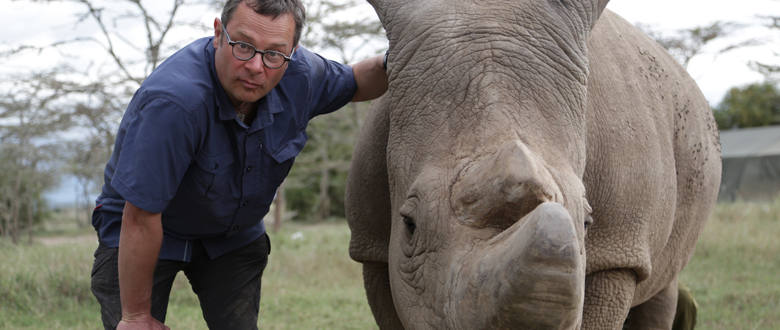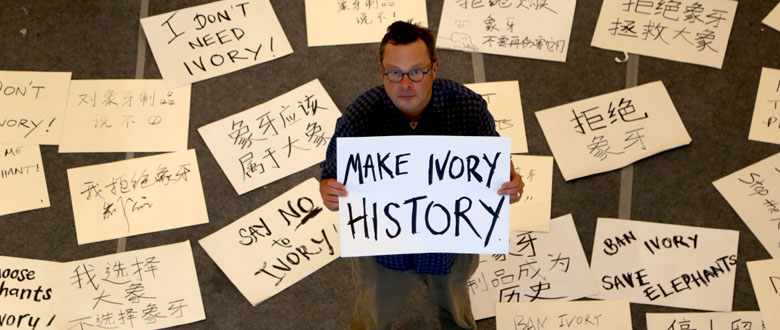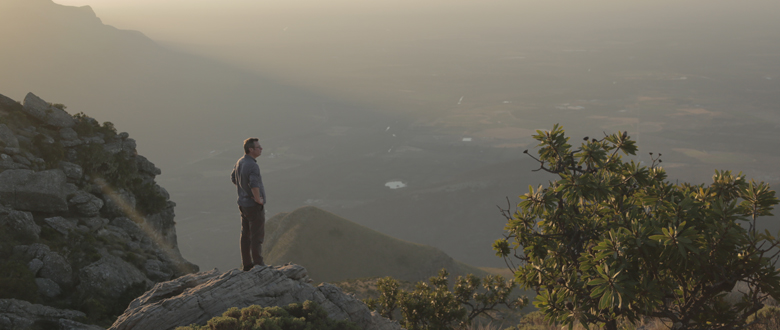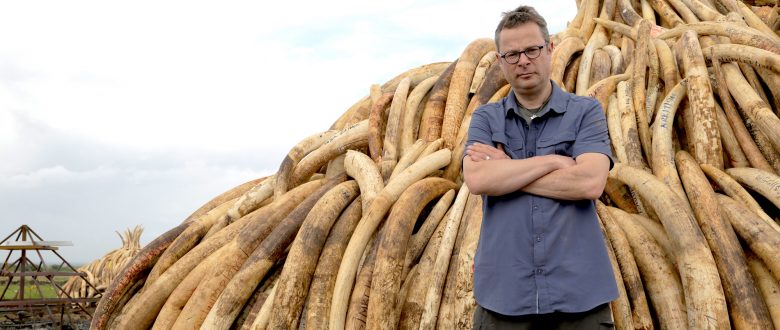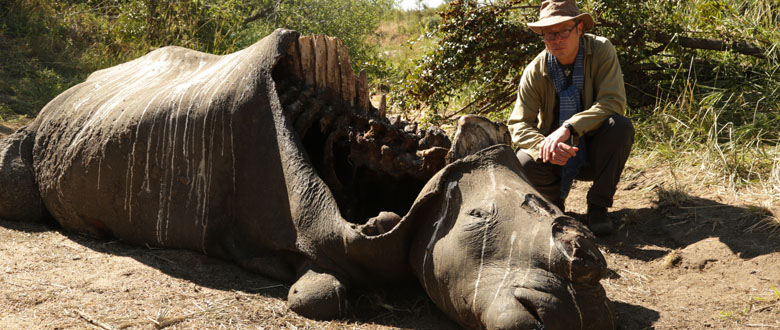Saving Africa’s Elephants: Hugh and the Ivory War
Every day over 80 elephants are being killed in Africa for their ivory. At this rate, experts have warned, the African elephant could be extinct in the wild within 25 years. Hugh’s on a mission to find out how this brutal, illegal trade can be stopped.
Starting in the poaching hotspot of Northern Mozambique, Hugh follows the ivory trail through the port of Mombasa in Kenya, where a whistleblower reveals the corruption that lets smuggled ivory through the port.
From there Hugh heads to one of the busiest ivory markets in the world – Hong Kong, where he goes undercover to prove that traders are laundering recently poached ivory smuggled in from Africa. To his surprise he discovers that Europe and the UK are also sending huge amounts of ivory to Asia.
Back in the UK, Hugh uses radio carbon dating to reveal that carved ivory pieces on sale here are not always the antiques they claim to be. These shocking results lead him to call into question the UK Government’s policy on ivory. Are they prepared to take action? Hugh’s determined to get answers at the highest level.
EPISODE 1 SYNOPSIS
The illegal wildlife trade is a $20 billion industry, exceeded only by the illegal trades in drugs, weapons and people. The money stimulates violence, corruption, and a sophisticated and dangerous international network of criminals.
Two of the world’s most iconic species are at the centre of this nightmare. With an average of 82 elephants and 4 rhino poached every day, there is now a real threat that these animals could become extinct in the wild.
In this episode Hugh travels to Mozambique’s worst affected area, Niassa National Reserve, to find out why they have lost almost two thirds of their elephants in only three years. He joins conservationists, rangers and villagers as he patrols from the air and on the ground to discover the grim reality of the situation.
Seizure records show that an alarming amount of illegal ivory is smuggled through Mombasa Port in Kenya on its way out of the continent. Hugh wants to know how and why. He joins the Kenya government’s sniffer dog unit as a passport to get inside the port’s heavily guarded gates to find out more. Hugh finds evidence to suggest that bribery and collusion allows ivory to slip through the port in consignments of tea.
Hugh heads to Hong Kong, where carved ivory is popular as a work of art and sold openly in licensed shops. Here, as with elsewhere, the rules of the trade are riddled with confusion. Antique, or pre-convention ivory, is legal, but new fresh ivory is not. It is impossible, however, for an untrained eye to tell the difference. Hugh quizzes shop owners on the provenance of their stock, but quickly hits a wall. Teamed up with undercover experts from mainland China and rigged with secret cameras, he exposes how significant quantities of ivory from Europe are playing a part in fuelling the trade.
Back in the UK, Hugh wants to find out how much our own legal ivory trade is part of the problem. Questioning whether all of our antique ivory is really what it claims to be, he sends 9 pieces to be radio carbon dated. The shocking results suggest the UK ivory market is in disarray, and figures obtained from Hong Kong show that our own dealers are fuelling the Asian trade.
Hugh decides it’s time to challenge the UK Government on ivory policy – and remind them that they have twice pledged to ban the UK trade.
First broadcast on 24th & 31st Oct 2016 on BBC One.
Credits
Written & Presented by
Hugh Fearnley-Whittingstall
With thanks to
Jess Upton
Samuel K Wasser
David Shepherd Wildlife Foundation
Environmental Investigation Agency
Save the Elephants
Archive
AFP
AP Archive
British Pathé
Earth Touch
ITN Source
ITN Source/Reuters
ITV – Tanzania
Colourist
Tim Bolt
Online Editor
Arun Hall
Dubbing Mixer
Will Norie
Camera
Johann Perry
Sound
Andy Hoare
Additional Sound
Martin Wilson
Graphics
Compost Creative
Production Team
Terrence Woods
Harriet Hoare
Louise Kaleda-Thompson
Production Accountant
Phil Hastings
Production Coordinators
Elizabeth Ainge
Julia Speed
Production Manager
Dulcie Arnold
Production Executive
Trevor Lopez de Vergara
Head of Production
Maddy Allen
Development
Miriam Jones
Gemma Perlin
Assistant Producer
Sara Douglas
Producers
Alice Henley
Matt Kennedy
Editor
Dan Glendenning
Additional Editor
Maria Corral
Original Music
Adam Skinner
Dan Skinner
Commissioning Editor for the BBC
Tom McDonald
Executive Producers
Will Anderson
Andrew Palmer
Series Producer
Jacky Sloane
Series Director
Tom Beard

